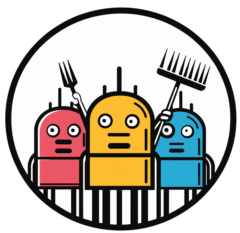A century ago, schools were brutal, rigid places. Latin declensions were drilled into unwilling heads, children forced to sit still for hours, individuality met with suspicion. The “normal” kids—those brimming with life, energy, and emotional spontaneity—hated school. The system wasn’t designed for them.
It was designed for a very different kind of mind.
The ideal student of that older system was intensely focused, rule-bound, and capable of sustained abstraction. In today’s language, a student who might score moderately high on autism or ADHD scales. The old system rewarded those who could sit alone, concentrate deeply, and endure solitude for the sake of mastering Latin grammar or solving geometric puzzles.
But today, we’ve swung dramatically the other way. Modern schools cater to the masses, emphasising collaboration, emotional intelligence, and social fluency over solitary genius. The “odd” kids—those restless, obsessive, or socially awkward—are seen as problems to be fixed, disorders to medicate.
We risk drugging away the very minds that could have driven tomorrow’s breakthroughs.
Continue reading “The Tragedy of Modern Education”
